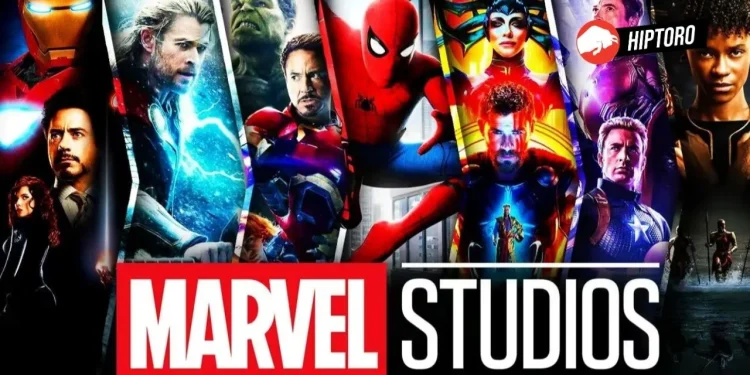The Marvel Cinematic Universe (MCU) has, since its inception, revolutionized not just the superhero genre but the entire landscape of cinema. As we venture into 2024, it stands as a colossal tapestry of interconnected stories, characters, and worlds that have captivated audiences around the globe. This monumental cinematic endeavor has skillfully blended action, drama, humor, and spectacle, making each entry not just a movie but an event.
From the groundbreaking “Iron Man” in 2008 to the universe-shattering “Avengers: Endgame” and beyond, the MCU has evolved, embracing new themes, technologies, and narratives to keep audiences enthralled. Now, as we look at the top 10 best MCU movies in 2024, we delve into a selection that exemplifies the pinnacle of Marvel Studios’ filmmaking, showcasing innovation, character depth, and epic storytelling that continue to push the boundaries of the superhero genre.
The criteria for ranking these movies are multifaceted, reflecting not only their box office success but also their cultural impact, critical acclaim, and the way they have expanded the MCU’s narrative scope. These films have set new standards for character development, visual effects, and thematic depth, making significant contributions to the overarching saga. Each movie on this list has been selected for its unique contribution to the MCU, showcasing the diversity and dynamism of Marvel’s cinematic universe.
The Evolution of the MCU: Setting New Cinematic Paradigms
The evolution of the MCU has been nothing short of spectacular, with each phase expanding the universe in scale and complexity. The integration of new characters, alongside the deepening of existing ones, has been a hallmark of Marvel’s storytelling approach. The use of cutting-edge technology in visual effects has brought to life the fantastical elements of the Marvel comics with unprecedented realism, while the narratives have grown increasingly sophisticated, often reflecting contemporary social and political themes. This evolution has not only entertained but also sparked important conversations, making the MCU a significant cultural phenomenon.
As we explore the top 10 best MCU movies in 2024, we’ll see how these films have contributed to this evolution, each bringing something unique to the table. Whether it’s through the introduction of new heroes and villains, the exploration of new genres within the superhero framework, or the seamless weaving together of multiple storylines across different movies, these top 10 entries represent the best of what the MCU has to offer.
Here’s the Top 10 Best MCU Movies in 2024
1. Black Panther: A Cultural Phenomenon
“Black Panther” stands as a monumental achievement in the Marvel Cinematic Universe, blending superhero spectacle with a deep exploration of culture, identity, and power. Directed by Ryan Coogler, the film is set in the fictional African nation of Wakanda, a technologically advanced society that has hidden itself from the rest of the world. At its heart is T’Challa (Chadwick Boseman), who ascends to the throne as Black Panther and faces challenges from factions within his own country and external threats.
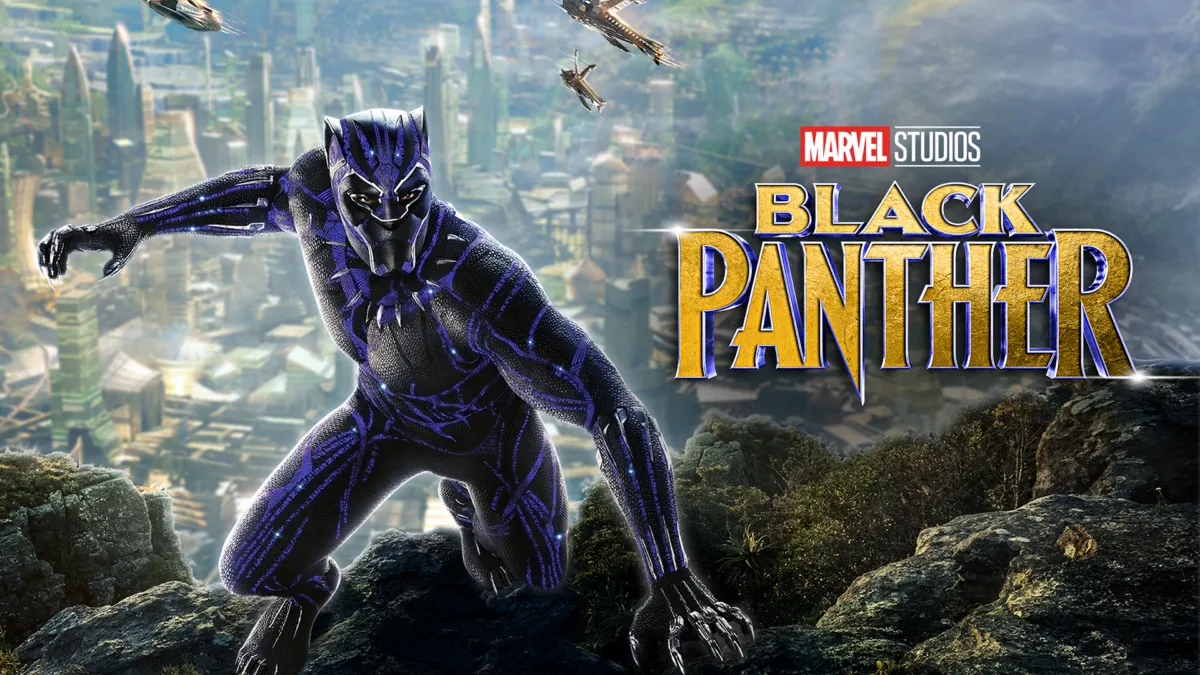
What sets “Black Panther” apart is its successful fusion of traditional African cultures with futuristic innovation, creating a visually stunning world that captivated audiences worldwide. The film’s portrayal of strong, intelligent characters, particularly women, broke new ground in superhero cinema. Characters like Shuri, Okoye, and Nakia are not just supporting roles but integral to Wakanda’s identity and T’Challa’s journey.
The film also tackles complex themes such as colonialism, heritage, and the responsibility of powerful nations. Erik Killmonger, played by Michael B. Jordan, emerges as one of the MCU’s most complex antagonists, challenging T’Challa’s ideologies and forcing him to confront uncomfortable truths about Wakanda’s role in the global landscape. “Black Panther” is a celebration of African cultures and a critical examination of power and responsibility, making it a landmark film in the MCU and a tribute to the late Chadwick Boseman’s legacy.
2. Avengers: Endgame: An Epic Conclusion
“Avengers: Endgame” is the climactic showdown of the MCU’s Infinity Saga, bringing together characters and storylines from over a decade of Marvel films. Directed by Anthony and Joe Russo, this epic conclusion follows the aftermath of “Avengers: Infinity War,” where Thanos has wiped out half of all life in the universe. The remaining Avengers and their allies must come together to reverse Thanos’s actions and restore order to the universe.
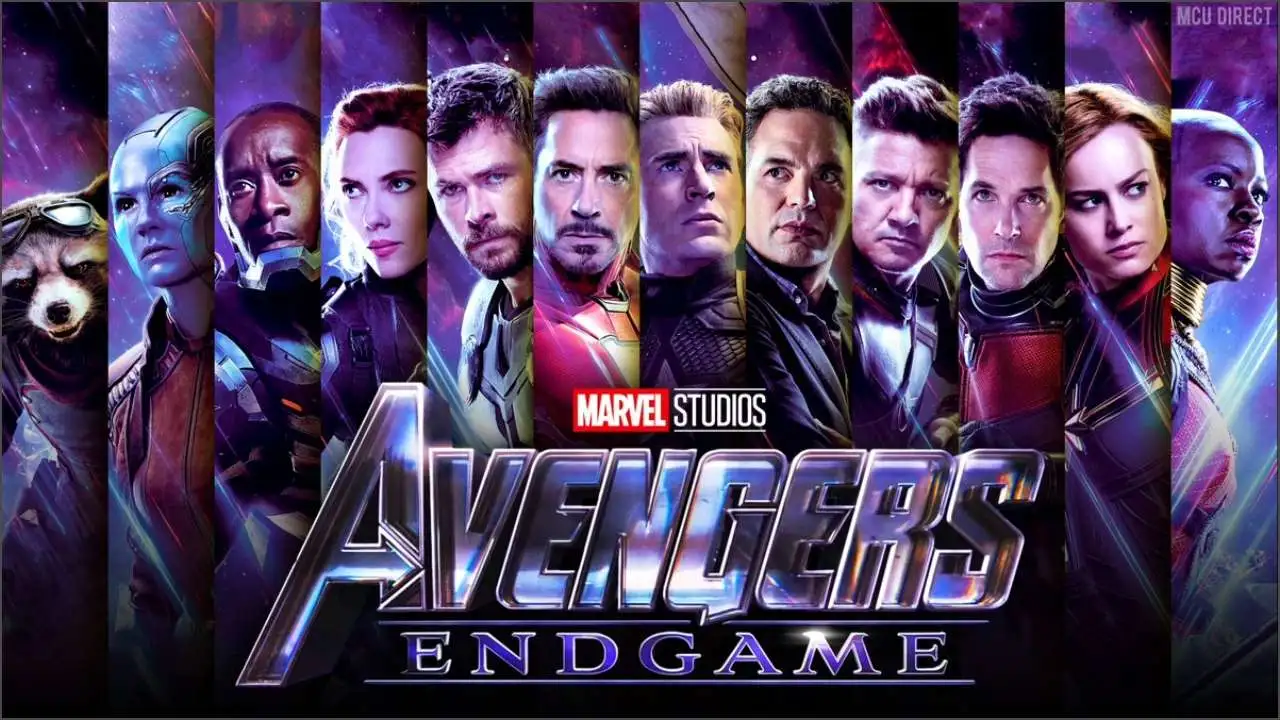
Spanning multiple timelines and dimensions, “Endgame” is a masterful tapestry of action, emotion, and time-traveling adventure. It pays homage to the MCU’s rich history while providing closure to the arcs of beloved characters like Tony Stark and Steve Rogers. Stark’s ultimate sacrifice and Rogers’s decision to live a life he missed offer poignant bookends to their decade-long journeys, embodying themes of heroism, sacrifice, and the pursuit of peace.
“Endgame” is not just a film; it’s an event that delivered unparalleled spectacle, from its breathtaking battles to its quiet moments of character reflection. Its commercial and critical success underscores its impact, serving as a fitting capstone to the first era of the MCU and setting the stage for its future.
3. Iron Man: The Beginning
“Iron Man,” directed by Jon Favreau, is the film that launched the Marvel Cinematic Universe. Starring Robert Downey Jr. as Tony Stark, a genius billionaire and arms manufacturer who becomes the armored superhero Iron Man, it set the template for all MCU films that followed. Stark’s transformation from a self-absorbed industrialist to a hero willing to risk everything to protect others is a compelling narrative of redemption and responsibility.
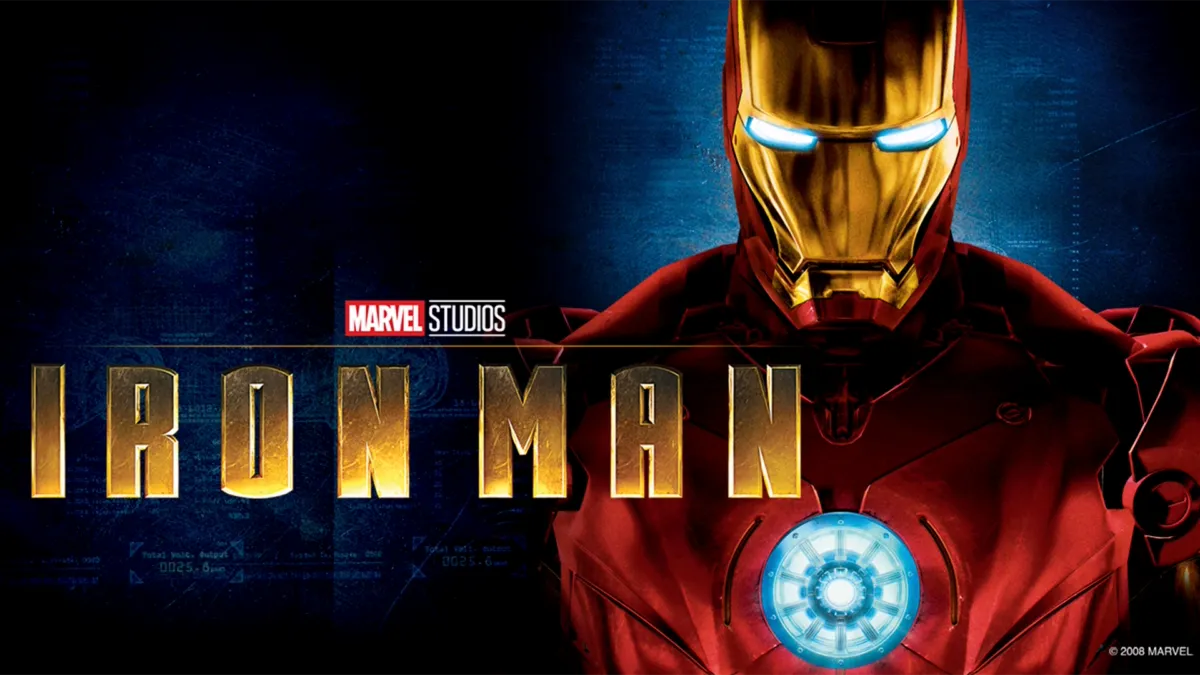
The film’s success lies not just in its action sequences and visual effects but in Downey Jr.’s charismatic performance, which brought depth and humanity to the character of Tony Stark. “Iron Man” introduced the world to the interconnected storytelling and character-driven narratives that would become the hallmark of the MCU. Its post-credits scene, featuring Samuel L. Jackson as Nick Fury, hinted at the larger universe to come, igniting excitement and anticipation among fans.
“Iron Man” is a groundbreaking film that blends humor, heart, and spectacle, setting a high standard for superhero cinema. It remains a critical and fan favorite, illustrating the power of innovation and character in crafting a compelling story.
4. Thor: Ragnarok – A Cosmic Delight
“Thor: Ragnarok,” directed by Taika Waititi, revitalized the Thor franchise with its vibrant visuals, irreverent humor, and dynamic storytelling. The film finds Thor (Chris Hemsworth) in a race against time to prevent Ragnarok, the destruction of his homeworld, Asgard, at the hands of the ruthless Hela (Cate Blanchett). Stranded on the alien planet of Sakaar, Thor must survive a gladiatorial duel against his “friend from work,” the Hulk, and mount a daring escape to save his people.
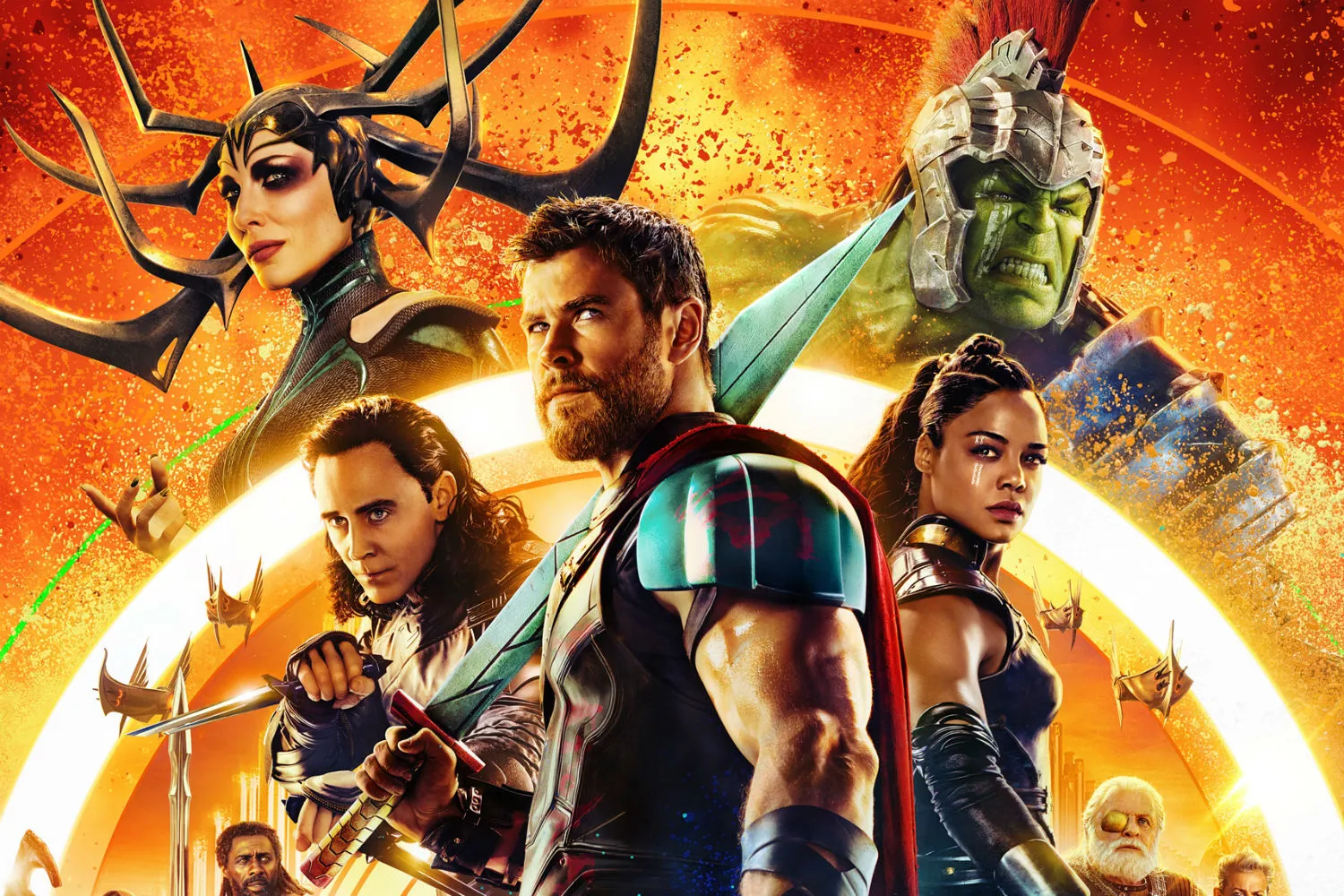
Waititi’s unique vision transformed “Thor: Ragnarok” into a cosmic road movie, infused with a retro-futuristic aesthetic and a soundtrack to match. The film’s humor, coupled with its exploration of themes such as imperialism and identity, distinguishes it within the MCU. Thor’s journey of self-discovery, alongside memorable characters like Valkyrie and Korg, provides a fresh take on the superhero genre, balancing epic action with emotional depth.
“Thor: Ragnarok” is a testament to the creative risks that have defined the MCU’s success, offering a thrilling adventure that redefines its titular character and sets a new course for his future.
5. Spider-Man: No Way Home – A Multiversal Adventure
“Spider-Man: No Way Home,” directed by Jon Watts, is a bold exploration of the multiverse, bringing together different iterations of the Spider-Man character in an unprecedented cinematic event. Following the revelation of Peter Parker’s (Tom Holland) identity as Spider-Man, the film delves into the consequences of fame and the lengths to which Peter will go to protect his loved ones. His decision to enlist Doctor Strange’s help to restore his anonymity spirals out of control, tearing open the fabric of the multiverse and bringing villains from alternate realities into their world.
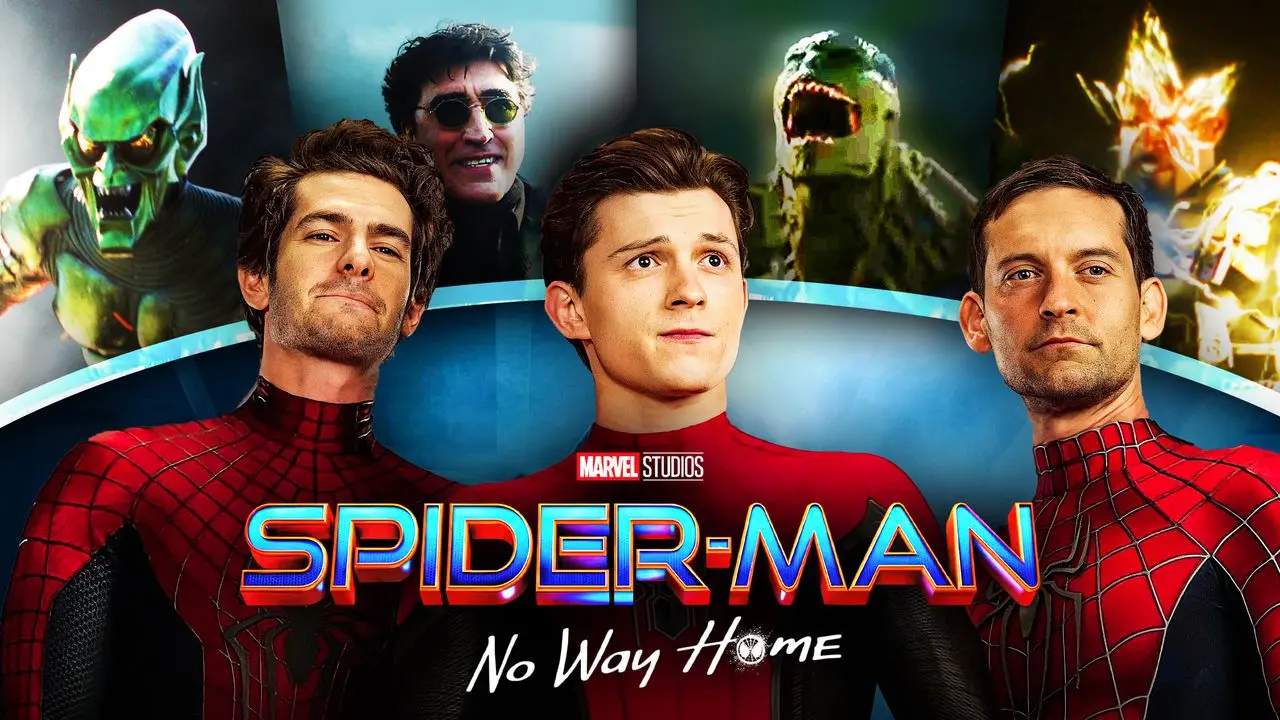
The film is a love letter to Spider-Man fans, featuring appearances by Tobey Maguire and Andrew Garfield as their respective versions of Spider-Man, alongside iconic villains like Green Goblin, Doc Ock, and Electro. “No Way Home” balances spectacular action with heartfelt moments of camaraderie and redemption, highlighting the enduring appeal of the Spider-Man legacy.
“No Way Home” is not just a high-stakes multiversal adventure but a meditation on identity, responsibility, and the impact of choices. It stands as a groundbreaking addition to the Spider-Man films and the MCU at large, celebrated for its ambitious storytelling and emotional resonance.
6. Spider-Man: Homecoming – A Hero’s Journey
“Spider-Man: Homecoming,” directed by Jon Watts, marks a refreshing return to the beloved character’s roots, focusing on Peter Parker’s (Tom Holland) dual life as a high school student and a fledgling superhero. The film smartly eschews the traditional origin story, instead diving into Peter’s struggles with adolescence, responsibility, and his eagerness to prove himself as an Avenger. Tony Stark’s (Robert Downey Jr.) role as Peter’s mentor adds depth to the narrative, offering a unique dynamic that explores the theme of growth and the meaning of being a hero.
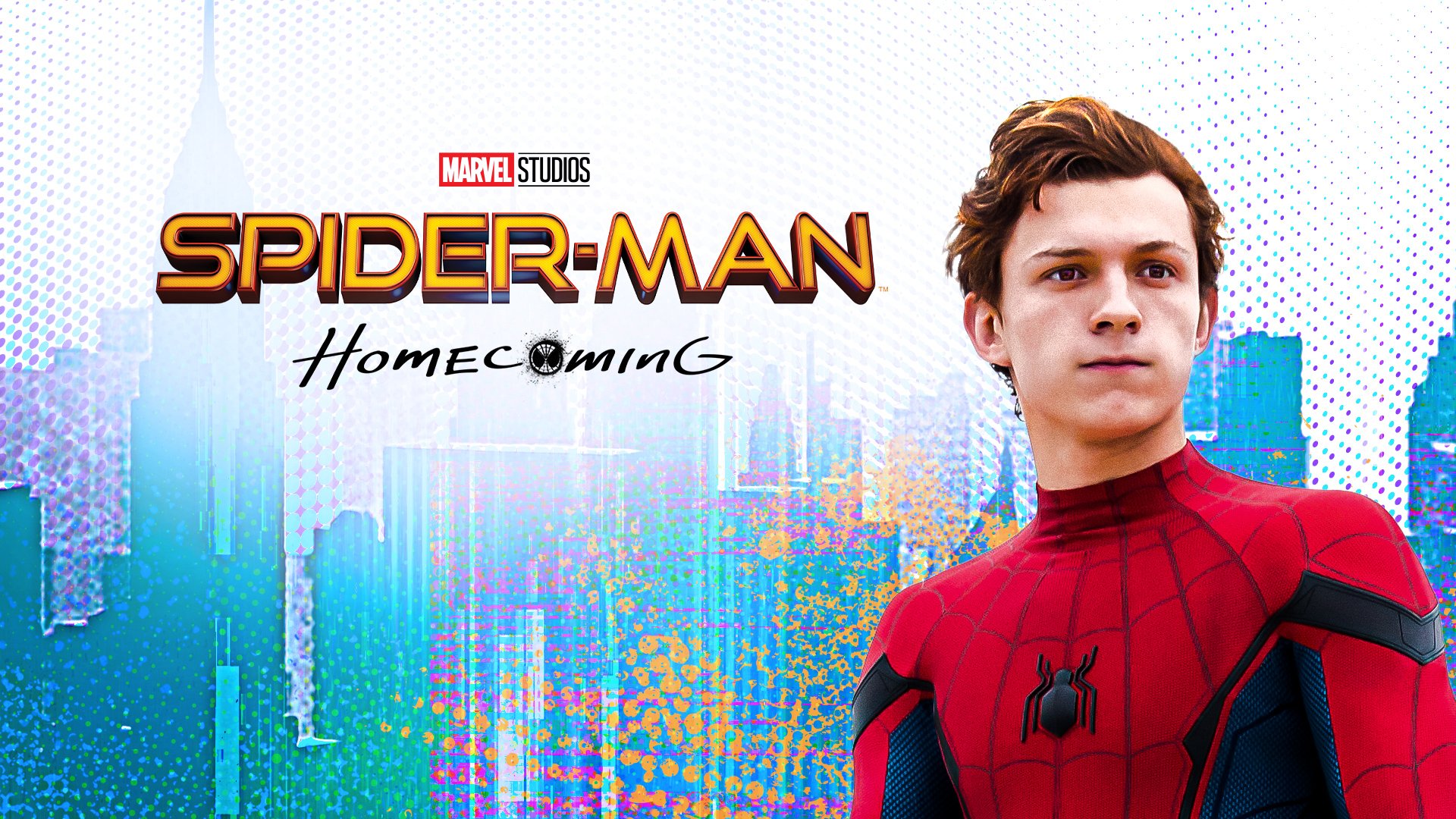
“Homecoming” stands out for its grounded portrayal of Spider-Man, emphasizing the character’s relatability and the everyday challenges he faces. The villain, Vulture (Michael Keaton), is depicted with a complexity that resonates with the audience, blurring the lines between good and evil. The film’s action sequences are seamlessly integrated into the story, enhancing the character’s journey without overshadowing it.
The blend of humor, heart, and action in “Spider-Man: Homecoming” revitalizes the franchise, offering a fresh and youthful perspective on the superhero genre. It successfully captures the essence of Spider-Man, combining the thrill of superheroes with the trials of high school life, making it a standout entry in the MCU.
7. Shang-Chi and the Legend of the Ten Rings: A Martial Arts Epic
“Shang-Chi and the Legend of the Ten Rings,” directed by Destin Daniel Cretton, introduces audiences to the MCU’s first Asian superhero, Shang-Chi (Simu Liu), in a thrilling blend of martial arts action and deep emotional storytelling. The film explores Shang-Chi’s complex relationship with his father, Wenwu (Tony Leung), the leader of the Ten Rings organization, weaving a narrative about family, identity, and destiny.
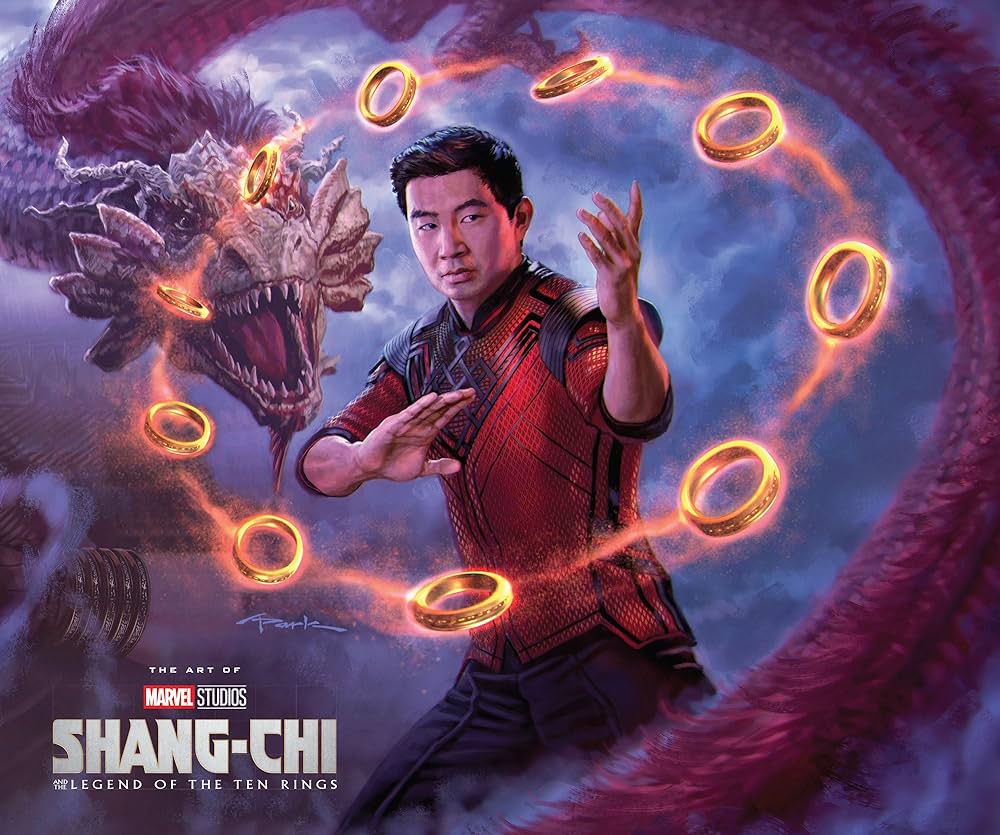
The movie excels in its breathtaking martial arts choreography, offering some of the most visually stunning and intricately designed fight sequences in the MCU. The representation of Asian culture and mythology adds a rich layer of depth to the story, celebrating the diversity of the Marvel Universe. The dynamic between Shang-Chi and his allies, including Katy (Awkwafina) and his sister Xialing (Meng’er Zhang), provides a solid emotional foundation, enhancing the film’s action with heart and humor.
“Shang-Chi and the Legend of the Ten Rings” is a groundbreaking film that expands the MCU’s horizons, introducing a new hero while exploring themes of heritage and self-discovery. Its critical and commercial success underscores the importance of diversity and representation in superhero cinema.
8. Guardians of the Galaxy: A Cosmic Adventure
“Guardians of the Galaxy,” directed by James Gunn, is a vibrant and irreverent addition to the MCU that turns a group of intergalactic misfits into heroes. The film follows Peter Quill/Star-Lord (Chris Pratt), Gamora (Zoe Saldana), Drax (Dave Bautista), Rocket (voiced by Bradley Cooper), and Groot (voiced by Vin Diesel) as they band together to stop the fanatical Ronan the Accuser from destroying the galaxy.
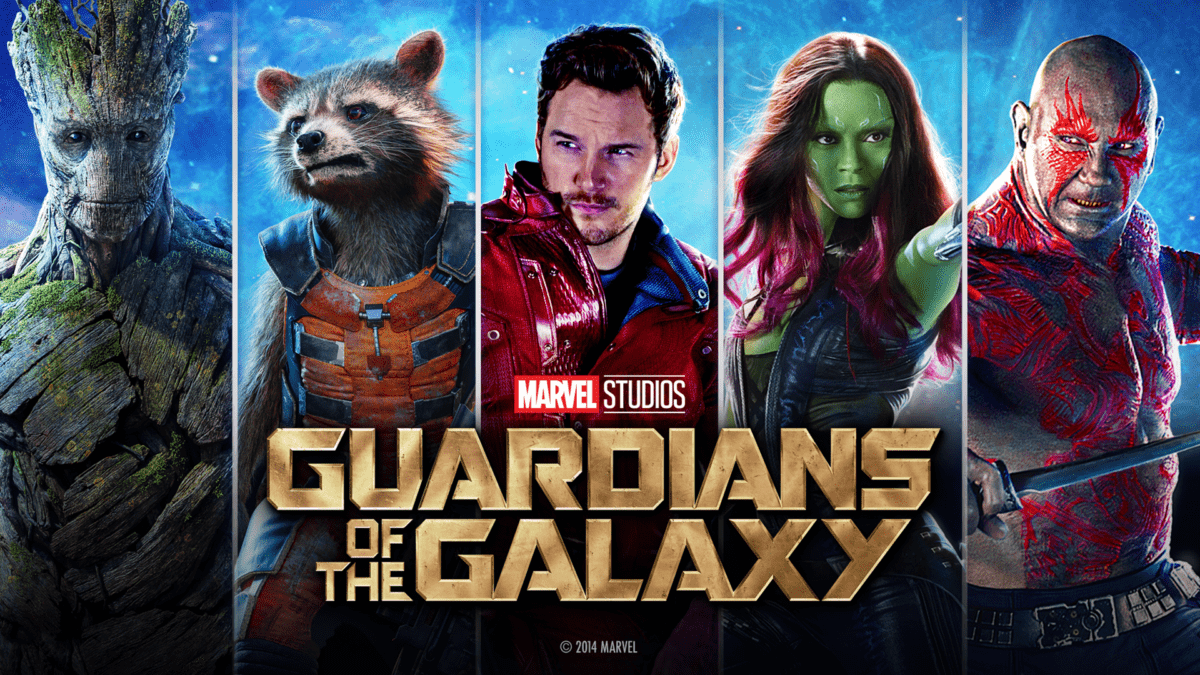
What sets “Guardians of the Galaxy” apart is its unique tone, combining humor, heart, and a stellar 70s soundtrack that perfectly complements the film’s cosmic setting. The characters, each with their tragic pasts, form an unlikely family, giving the film its emotional core. The visual effects and creative set pieces create a vivid and immersive world that is a feast for the eyes.
“Guardians of the Galaxy” broke the mold for superhero films, showcasing the potential for storytelling beyond Earth and introducing audiences to the broader cosmos of the Marvel Universe. Its success demonstrated the appeal of lesser-known comic characters, enriching the MCU with its humor, warmth, and distinctive style.
9. Captain America: Civil War: A Clash of Ideals
“Captain America: Civil War,” directed by Anthony and Joe Russo, is a pivotal film in the MCU that delves into the moral and ethical complexities of heroism. The film centers on the ideological divide between Tony Stark/Iron Man and Steve Rogers/Captain America over the Sokovia Accords, a legislative act that would place the Avengers under government oversight. This disagreement splits the superhero community, leading to a thrilling and emotionally charged confrontation.
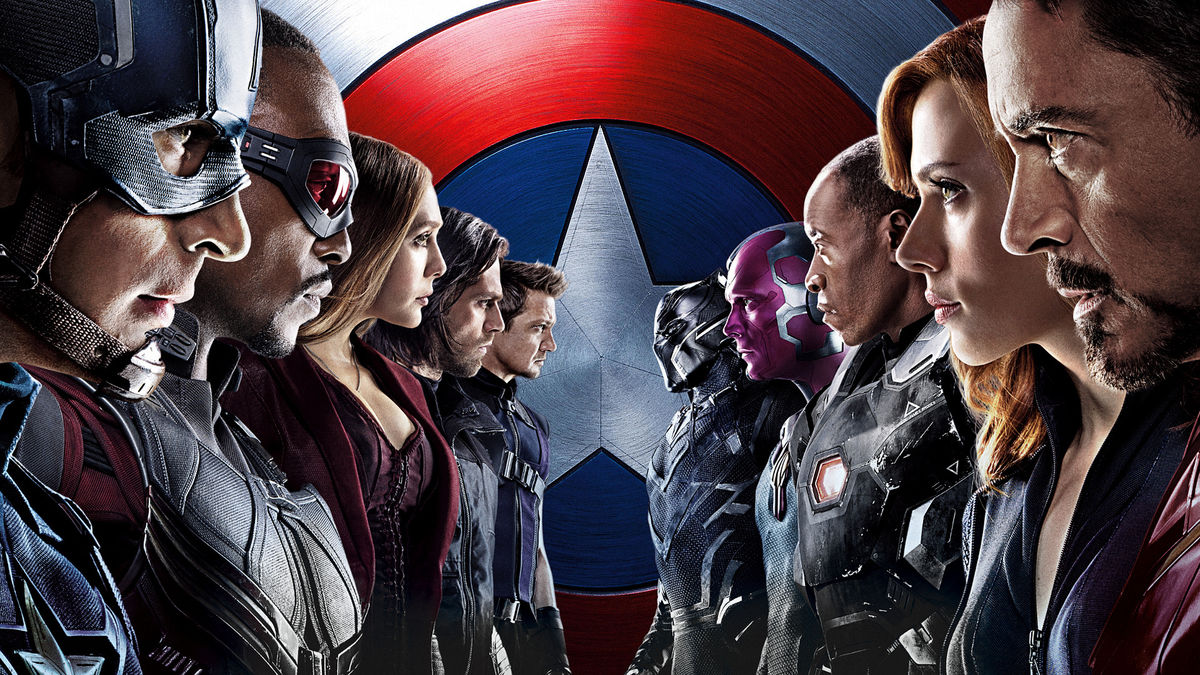
“Civil War” explores themes of freedom, accountability, and the consequences of power, challenging its characters and the audience to consider the cost of heroism. The introduction of characters like Black Panther (Chadwick Boseman) and Spider-Man (Tom Holland) adds new perspectives to the debate, enriching the narrative. The film’s action sequences, especially the iconic airport battle, are expertly choreographed, showcasing the abilities and dynamics of each hero.
As much a political thriller as a superhero movie, “Captain America: Civil War” stands out for its depth of character development and its willingness to confront the darker aspects of power and responsibility. It marks a turning point in the MCU, setting the stage for the conflicts that would define the universe’s future.
10. Marvel’s The Avengers: The Assembly of Heroes
“Marvel’s The Avengers,” directed by Joss Whedon, is the culmination of the MCU’s Phase One, bringing together Iron Man, Captain America, Thor, Hulk, Black Widow, and Hawkeye to fight against the threat posed by Loki and his alien army. The film was a monumental achievement, representing the first time in cinematic history that characters from separate franchises united in a single film.
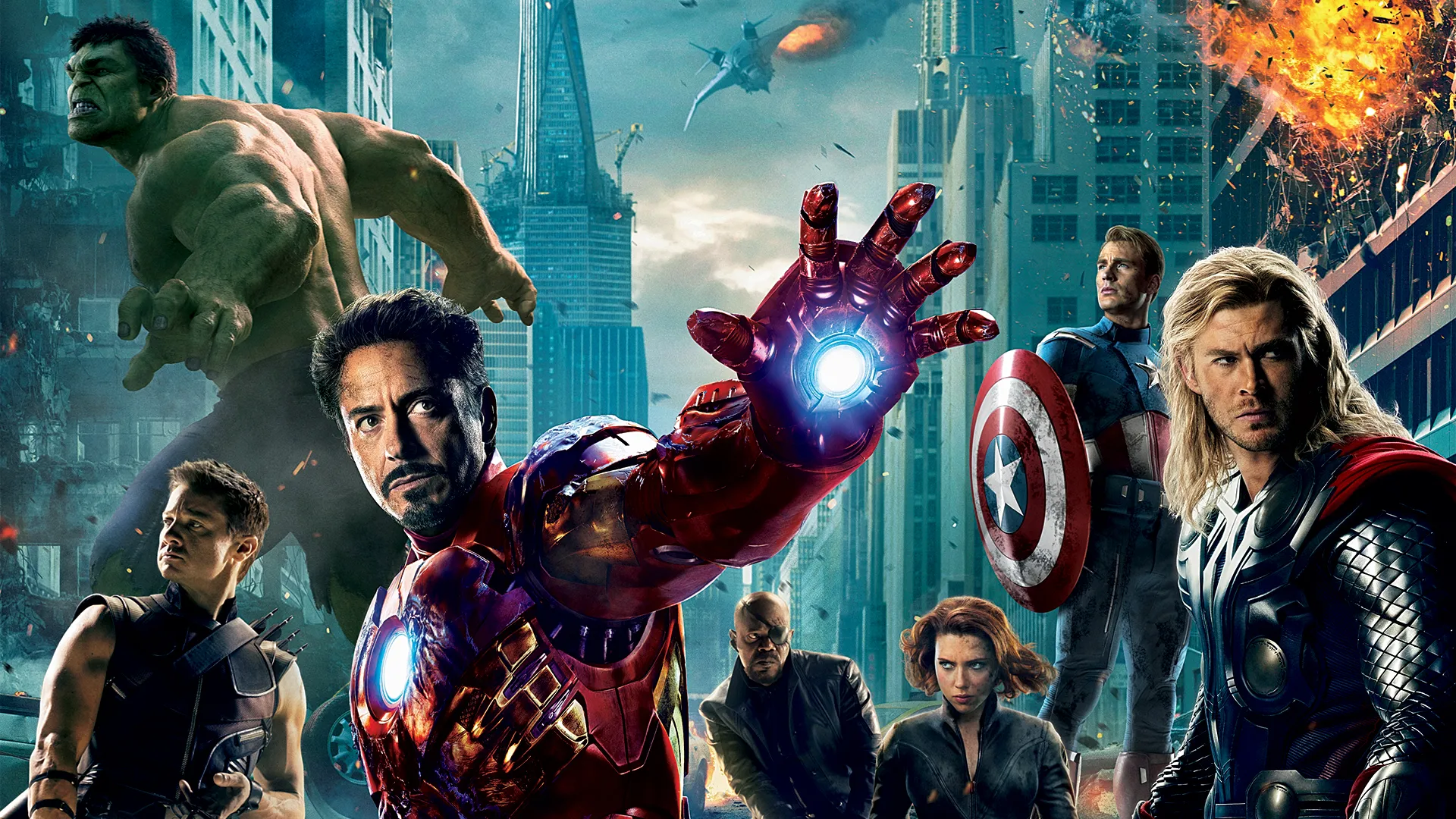
The strength of “The Avengers” lies in its character dynamics, blending diverse personalities and power sets into a cohesive team. The film balances action, humor, and character development, crafting a narrative that is both epic in scale and personal in focus. Loki played with charismatic menace by Tom Hiddleston, serves as a formidable antagonist, challenging the Avengers both physically and ideologically.
“Marvel’s The Avengers” set a new standard for superhero team-ups, proving that a shared cinematic universe was not only possible but could be wildly successful. Its impact on the film industry and popular culture is immeasurable, laying the groundwork for the future of the MCU and superhero cinema at large.
In the realm of cinematic storytelling, the Marvel Cinematic Universe (MCU) has etched its name into the annals of history, not merely as a series of interconnected superhero films but as a cultural phenomenon that has redefined the landscape of modern cinema. The ten films discussed, from “Black Panther” to “Marvel’s The Avengers,” represent the pinnacle of this groundbreaking saga, each contributing uniquely to the tapestry of this vast narrative universe. They are not just films; they are chapters of a larger story, one that speaks to the heart of heroism, sacrifice, and the eternal struggle between good and evil.
“Black Panther” broke barriers, bringing to the forefront the importance of representation and cultural identity, and embedding itself in the cultural zeitgeist. “Avengers: Endgame” served as a monumental culmination of over a decade’s worth of storytelling, providing both closure and a gateway to new beginnings. “Iron Man,” the film that started it all, laid the groundwork for what would become the most successful film franchise in history, redefining the superhero genre. “Thor: Ragnarok” and “Guardians of the Galaxy” brought humor and a cosmic perspective to the MCU, showcasing the universe’s vastness and diversity. Meanwhile, “Spider-Man: Homecoming” and “Spider-Man: No Way Home” explored the trials of heroism through the lens of adolescence, grounding the extraordinary in the ordinary.
“Shang-Chi and the Legend of the Ten Rings” expanded the MCU’s geographical and cultural horizons, introducing audiences to new myths and legends. “Captain America: Civil War” delved into the complexities and moral quandaries of power and responsibility, challenging its heroes in unprecedented ways. Finally, “Marvel’s The Avengers” achieved what was once thought impossible, uniting heroes from separate narratives into a cohesive and dynamic team, setting a new benchmark for cinematic universes.
The MCU’s success lies not just in its box office numbers but in its ability to connect with audiences on a personal level. It has crafted a universe where the fantastical exists alongside the mundane, where gods walk among men, and where the smallest individual can make the biggest difference. It has shown us the value of teamwork, the importance of facing our fears, and the power of believing in something greater than ourselves. Through its rich tapestry of characters, stories, and worlds, the MCU has become a mirror reflecting our hopes, dreams, and the complexities of the human condition.
As we look to the future, the MCU shows no signs of slowing down. With each new film and series, it continues to expand, explore new genres, and introduce new characters, ensuring its place in the hearts of audiences for generations to come. The ten films discussed here are but a snapshot of its journey so far, a testament to the creativity, imagination, and hard work of countless individuals who have brought these characters and stories to life.
In conclusion, the Marvel Cinematic Universe transcends the confines of superhero cinema, standing as a monumental achievement in storytelling. It has woven a narrative so rich, so diverse, and so engaging that it has become more than just entertainment—it has become a part of our collective consciousness. As we celebrate these top ten films, we also look forward with anticipation to the next chapters of this ever-expanding universe, ready to be inspired, entertained, and, above all, reminded of the enduring power of storytelling.


